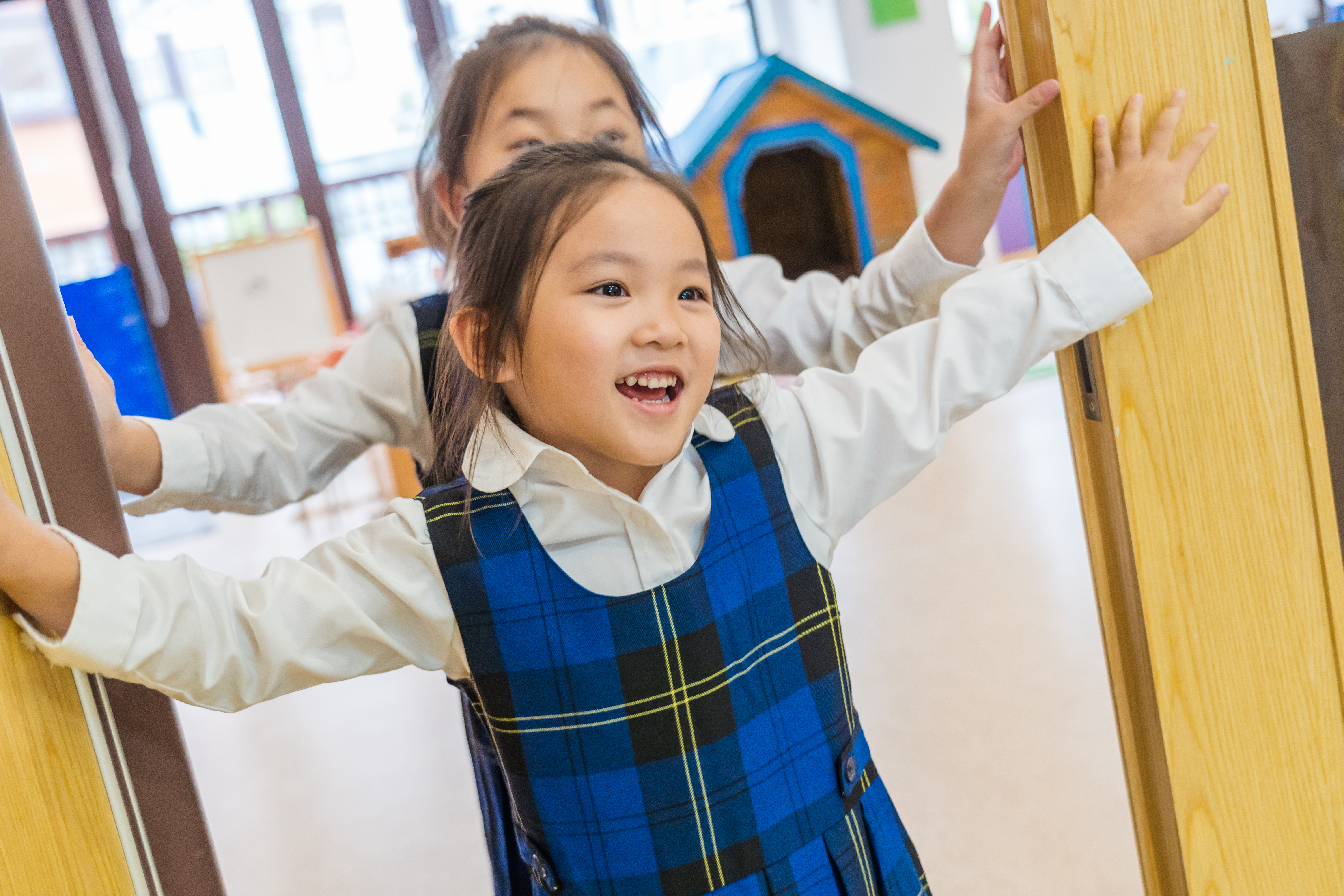
Adapted from an article written for Hiba Academy Shanghai by Sue Carpenter, Early Years Educator. Most people love to sing, and evidence suggests that it has a range of benefits for people young and old. One doesn’t need to be a good singer, eagerness and enthusiasm can make up for a lack of technical skills. Enjoyment is key and during these unusual times, we have abundant opportunity to sing with our children at home, as we play in the garden or walk outdoors. Sue writes about loving and nurturing environments, which a child’s home should be as much as a nursery should. Therefore, most of her principles are applicable to the home environment with supporting family as much as a nursery with a caring teaching team as support. This article was first published in October 2016, when Sue Carpenter, formerly Principal of Dubai British Foundation attended our inaugural Festival of Education as a guest speaker. Sue was, and continues to be an inspiring educator, and I hope this article inspires you to find and enjoy opportunities to sing.

Sue Carpenter I started teaching in 1983. Fresh out of university I recall the huge excitement of preparing to teach my very first class of Reception children in an inner city school in Newcastle upon Tyne, England. I loved it so much I remember thinking that I would happily spend the rest of my life teaching, albeit possible to have a short while off to have children of my own. I spent my first few years teaching children of all primary ages, before following my instinct to concentrate on teaching children between the ages of three and five years of age. I was absolutely fascinated by young children and very fortunate to be supported by the management of each of the schools I worked in, to concentrate upon this preferred age range. I have worked in six fantastic schools to date; three in the UK and three in the UAE and in each, the passion that first took seed in my formative years of teaching, has simply grown from strength to strength.

I am a deep advocate of Early Years Education and truly believe it to be the most important stage of all of the phases of learning for this is where children acquire all of the core skills to equip them to be successful throughout the whole of their education and on into adulthood.

I have genuinely worked hard to perfect the ‘tools’ of my trade to become the best early years’ educator I can be. I’ve been busily doing this for more than thirty years now and have no regrets. I have learned so much from the inspiring practice of many colleagues along the way, but vividly remember one particular ‘light bulb moment’ when I saw one of my colleagues using singing to interact with her pupils. Her three year old pupils (including my own daughter) were sitting on a carpeted area in front of her and not listening terribly well, when all of a sudden, she calmly and very sweetly began to sing “Come closer, come closer and listen” and as if by magic, the children’s eyes went straight to their teacher whom they clearly adored and they all shuffled forward to be as close to her as they possibly could in anticipation of something lovely that was surely about to happen. In that moment I instantly knew what I needed to do and from that point onwards, I sought to use as many songs as possible in class to establish useful routines, to impact upon positive behaviour management and to promote the very effective listening my talented colleague had achieved. I would spend hours every evening researching songs and adapting them to use for various purposes in class, for of course it is essential to check for suitability, especially regarding the appropriateness of lyrics. Not all lyrics are suitable to use with young learners, but with many of the songs I used, the simplicity of the words and tune of the first line when repeated, had great effect and so as the weeks and months went by, I imitated that same technique and as I did so, I grew to discover that singing with my pupils actually provided a multitude of benefits, far more than I had ever imagined!

Frequent singing seemed to be supporting all the children’s language development, but, I noted that children who spoke very little English, had so much more confidence and motivation to use their developing English when singing enjoyable songs in collaboration with their peers and teachers. Singing as a regular, communal act helped to create a happy learning environment for us all. I had always loved singing privately on my own, but now I loved singing with my pupils even more and they clearly loved it too.

In a happy, loving, nurturing environment such as this, learning flourished and anything seemed possible. I believe that young children need to be surrounded by adults who demonstrate a genuine affection for them. Positive relationships are vital. Great knowledge and an understanding of the ‘mechanics’ of teaching are worthless in an early years classroom, if not accompanied with the emotional intelligence required to be able to establish a warm rapport with each and every child, to ensure each child feels safe, secure and valued as a unique little individual. The fundamental principles of good early years education and the needs of young children are almost identical anywhere in the world. All young children need to feel loved and valued and teachers too, for they perform of their best when relationships with their pupils and the parents of their pupils are positive and mutually supportive. Young children need to feel a close connect with the adults who educate and care for them, for this mirrors the warmth of their relationship with their parents which underpins their successful development and healthy well-being. Young children thrive best in an environment where they can ‘play around’ with words, extend their vocabulary, explore meaning and have fun. It’s not rocket science, but a combination of all of these ingredients is essential. Let me explain in more detail some of the many benefits of singing. The Health Benefits: Did you know that singing provides physical and mental health benefits?
Learning and Personal and Social Benefits:
Learning an Additional Language:
The great thing about singing is that you don’t need to be an accomplished musician with a trained voice to use it to great effect. You simply need the confidence to sing with enthusiasm and the discernment to research and select appropriate material for a wide variety of purposes. Any teacher, parent, grandparent or carer can do it, children will appreciate it and the potential for accelerating children’s language development is enormous.

A wise parent sings nursery rhymes and lullabies to their child from birth and some even advocate singing to their unborn child when still in the womb. As the first, most loving and arguably most important educator in any child’s life, a parent naturally longs to do all they can to promote their child’s successful learning. As teachers we need to work in partnership with parents to address the same challenge. I know no better way to unlock a child’s potential to speak with confidence, fluency, eloquence and skill, than to sing a great deal with them. I consider it essential that we continually expose young children to songs that introduce a wealth of rich vocabulary, model correct sentence structure and grammar, and contain content to help expand their knowledge and understanding of the world in which they live. There is nothing that can be said or read to a child than cannot be more effectively incorporated into a song to enhance the child’s ability to learn. Any determined teacher with a creative mind can do it. Just find a good jingle, put the words you need to teach into it and hey presto, you’ve a recipe for success.